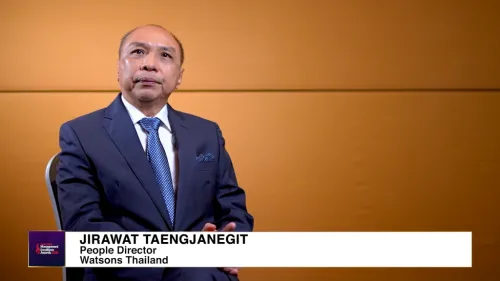
Asia’s insurance and banking titans pledge climate action
Insurance and banking leaders join forces to tackle climate change, emphasising the need for sustainable investments and inclusive transition strategies.
Insurance and banking leaders in Asia are increasingly committed to climate action. The transition is expected to be significant, upfront, and widespread, with varying impacts.
Based on McKinsey & Company forecasts, capital spending on physical assets would hit $275t by 2050, with an annual increase of up to $3.5t.
“While these spending requirements are large and financing has yet to be established, many investments have positive return profiles (even independent of their role in avoiding rising physical risks) and should not be seen as mere costs. Technological innovation could reduce capital costs for net-zero technologies faster than expected,” it said.
This report estimates the economic effects of the transition to net zero by 2050, focusing on energy and land-use systems responsible for 85% of emissions. Using the Net Zero 2050 scenario from the Network for Greening the Financial System (NGFS), it provides an estimate of the economic transformation and societal adjustments associated with this transition.
In February this year, big players from the financial services sector came together for a webinar themed "Journey to net zero – What can insurers and banks do more together?" by the Global Asia Insurance Partnership (GAIP) to discuss perspectives on leveraging the unique capabilities of their various industries to drive sustainable change whilst addressing the social and economic impacts of the transition.
Among the key speakers was Dennis Tan, managing director of Strategic Business Group at Prudential plc, and chief executive officer of Prudential Singapore, who presented his view on the life insurance sector. He delved into the significance of investment management in influencing the transition.
“Even though we all focus on decarbonisation, the social impact is another key consideration that we need to have as well,” Tan said. “It’s not just about snapping a finger and saying, ‘Hey, we want to get green out there.’ Of course, we want to do that. But what happens to those people who are currently working in those industries? What is the plan to upskill, reskill and support them?”
For Prudential, proactive steps towards decarbonisation were taken such as divesting from companies which generate more than 30% of their revenue from coal and reducing the carbon intensity of their investment portfolio, he said.
“The other one is working on the weighted average carbon intensity (WACI) of the portfolio. We’ve been reducing that. As a group, we have pledged that by the year 2030, the WACI of our investment portfolio will be reduced by at least 55%. So these are some tangible examples of what insurance companies out there, are doing to work towards a net-zero future,” Tan added.
Paul Young, head of Commercial Risk Solutions at Aon (Asia), spoke from his experience in the non-life insurance sector, underscoring the critical role of risk management in identifying, assessing, and mitigating climate-related risks.
“Climate change is happening and is real. Aon produced a report last year called the Climate Data and Catastrophe Insights report, which is an analysis of natural catastrophe events around the world,” Young said, noting how the report cited 2023 for having a record-high economic loss of $308b, up by 20% from 2022 with 398 notable events.
“Interestingly, $118b of those economic losses were insured. So there’s about a 60% retention gap globally. And this time, for the first time, the highest on record, 37 insured events were greater than a billion dollars, of which a quarter were in APAC. These numbers are pretty startling,” warned Young.
Drawing attention to the increasing frequency and severity of natural catastrophes, he highlighted the need for predictive analytics to anticipate future risks more accurately. He also stressed the importance of collaboration between insurers and clients to develop resilient solutions tailored to specific risk profiles.
Collaboration between banks and insurance from the investment aspect is also vital to the banking sector, as pointed out by Eric Lim, chief sustainability officer at UOB, as he delved into the symbiotic relationship between banks and insurers in financing and protecting assets.
“As a bank, you will also have sectoral policies very similar to what Tan talked about,” Lim said during the webinar. “I think it’s very important when a corporation starts to hear the same message come from different parts of the financial services ecosystem. They start to realise that they have to be able to take the right action for the medium and long term,” he added.
It should also be noted that regulatory support is crucial in providing clear guidance and standards for financial institutions to navigate the transition successfully, Lim said.
During the webinar, Daniel Wang, executive director of the Insurance Department at the Monetary Authority of Singapore (MAS), outlined the regulator’s role in providing these guidance and standards to steer financial institutions towards sustainability.
He emphasised the importance of engagement, multi-year planning, and meaningful disclosures in guiding financial institutions towards sustainable practices. He also discussed regulatory initiatives aimed at promoting green investments and supporting the transition to a net-zero economy.
“What we want to assist on and what we are embarking on is a pilot with the industry — which is to look at the relevant regulatory treatment; and when life insurers go into such investments — identify what are the appropriate guardrails. There are some ways where we can encourage greater investments such as these to better match their assets,” Wang said.
Kelvin Tan, managing director and head of Sustainable Finance & Investments in ASEAN at HSBC, pressed the need for an inclusive and holistic approach to the transition, considering the social and economic impacts on communities reliant on fossil fuels.
“In Asia Pacific, more than 80% of energy comes from fossil fuel. And in ASEAN, you have about close to 10% of people who are still not getting stable energy sources,” he cautioned.
The HSBC expert emphasised the challenges of transitioning away from fossil fuels whilst ensuring energy access and proposed strategies for financing alternative energy sources and technologies. He also noted the importance of collaboration, innovation, and regulatory support in overcoming these challenges and driving the transition to a sustainable future.
From proprietary data concerns to the risk of greenwashing, various obstacles must be addressed, forewarned by these industry leaders. However, there’s consensus on the need for collective action, supported by clear definitions, transparent disclosures, and regulatory guidance.
By leveraging expertise, sharing insights, and developing innovative solutions, insurance and banking sectors can navigate the complexities of climate change and drive meaningful progress towards a net-zero economy.
“I think the operative word here is to have an inclusive transition. We all already know we need to decarbonise by financing fewer fossil fuel projects and be less reliant on fossil fuels. But we also need to make it inclusive and to make sure that the process is smooth. Then, everyone will have the ability to have the energy sources that are needed for economic sustainability.” said HSBC’s Tan.



















 Advertise
Advertise








